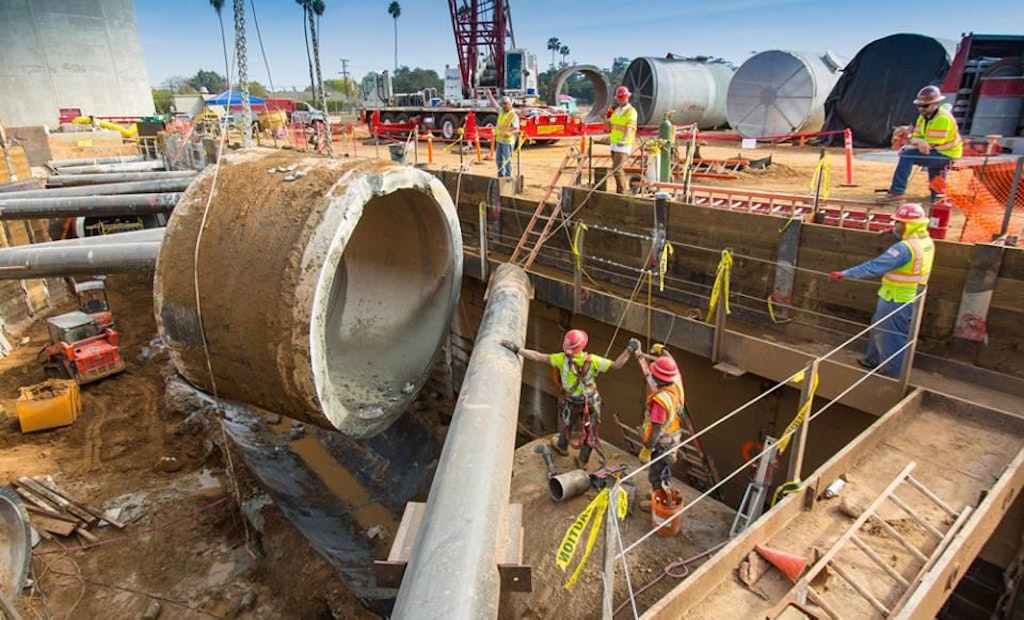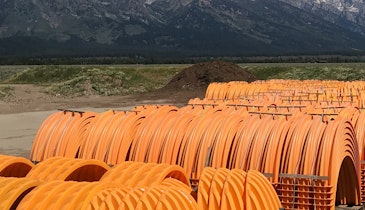
Interested in Education/Training?
Get Education/Training articles, news and videos right in your inbox! Sign up now.
Education/Training + Get AlertsThree of the West’s largest municipal water agencies have partnered with federal agencies to kick off the latest round of an expanded competitive grant program aimed at discovering the next generation of water-saving devices and technologies.
For the first time, the EPA is participating with the U.S. Bureau of Reclamation as well as the Central Arizona Project, the Metropolitan Water District of Southern California and Southern Nevada Water Authority in the Innovative Conservation Program. The program, which includes Southern California Gas Co., seeks to advance water-saving efforts by finding new and innovative methods for using supplies more efficiently.
“As Western states brace for another year of drought, many are regarding dry conditions as the new normal," says Tomás Torres, EPA’s water division director for the Pacific Southwest. "By supporting the ICP, we’re investing in innovative solutions to help communities meet the challenges of tomorrow — today.”
This year’s $500,000 ICP cycle focuses on water-saving devices, technologies and strategy proposals that address the water/energy nexus. Awards will be made in two funding categories: up to $30,000 and between $30,000 and $100,000. Proposals that address other aspects of water-use efficiency also will be considered. All proposals are due May 23.
Since Metropolitan and Reclamation began the ICP in 2001, the program has awarded 57 grants totaling $1.85 million during the first five two-year funding cycles. Overall, the ICP has yielded 262 proposals totaling $27 million in funding requests from public agencies, community-based organizations, private companies, entrepreneurs, research institutes and equipment manufacturers.
“These kinds of successful programs with our partners are an important tool in Reclamation's Colorado River water management responsibilities as we face the effects of years of drought and the influences of climate variability," says Reclamation’s Lower Colorado Regional Director Terry Fulp.
The last ICP round supported the investigation of plant-sensor-based irrigation in vineyards for both wine quality and yield, and several projects on soil amendments that maintain the health of the grass while significantly minimizing the amount of water applied.
“Ongoing efforts to reduce Colorado River water demands have yielded water savings throughout the Colorado River Basin, and this program provides another tool to further those efforts through water-related innovations and public-private partnerships,” says John Entsminger, Southern Nevada’s general manager.
Proposals will be evaluated through a competitive review process based on project innovations; a water/energy saving and research plan; market impact potential; cost effectiveness; ICP focus and project preparedness.
Metropolitan General Manager Jeffrey Kightlinger says the ICP fosters fresh and innovative approaches and inspires creative ideas and strategies to reduce water use.
“As the Southland adapts in response to California’s record drought, it is essential that we continue to seek out new projects and methods that help make water conservation sustainable," Kightlinger says.
Central Arizona Project's General Manager Ted Cooke calls the Innovative Conservation Program “another example of collaborative, proactive measures taken by municipal Colorado River water agencies to address the impacts of the persistent drought throughout the Colorado River Basin.
“It’s an important tool to address long-term imbalances in the system as well as near-term risks of shortage,” Cooke says. “CAP strongly supports this conservation program, which ultimately benefits the health of the river system.”
More information on the Innovative Conservation Program, including proposal submission instructions and a list of past projects is available at http://bewaterwise.com/icp.html.





